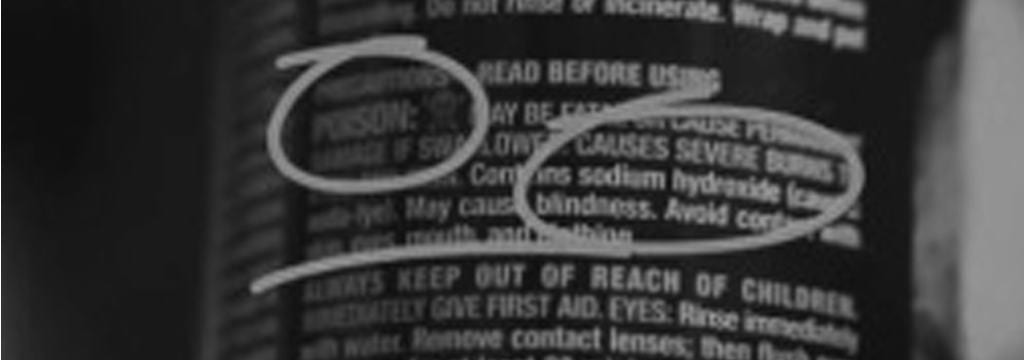There was a video I came across a few years ago which made me want to be 100% certain of where my beauty ingredients came from. If slathering things on our skin is an every day occurrence, we deserve to know what we are using on our skin. Over 60% of ingredients are absorbed into our bodies and it will all have a cumulative effect throughout our lives.
WATCH PIG 05049
THE FACTS ON DIMETHICONE
Dimethicone: It is a form of silicone ‘wax’ that apparently imparts “lubricity and softness to personal care formulations”. Essentially if you use a product with this ingredient, you have just lathered a layer of plastic on your skin. Now if you are into body wraps, I guess that’s exciting. I am just not certain about this whole trapping moisture next to my skin. It’s a great thought, but something about lathering plastic wrap on my face day after day is somewhat disconcerting.
This “barrier” as skin care manufacturers like to call it, sloughs off as the skin renews itself, requiring frequent application to maintain results.
I am not sure what results we are to expect with an occlusive emollient…but do people really believe that dimethicones are going to help your stave off old age, wrinkles, and lines? Anyways…occlusive properties also means clogged pores – leading to pimples, bumps, and blackheads. At least that’s been my experience. If you are an adult around the age of 30 and started to use anti-aging products… and have experienced a sudden onset of acne… chances are, you may be enjoying the full scale benefit of dimethicone… and a potential side effect.
Dimethicones are also used in numerous hair products. It is used to coat the surface of hair and lubricate it, improving combing and detangling, and thus reducing hair loss and breakage. Dimethicone is frequently used in smoothing serums and anti-frizz serums.
Whenever I used a dimethicone based product on my hair, (like a conditioner) I must wash my body thoroughly AFTER thoroughly rinsing my hair or risk enjoying occlusive properties on sensitive skin and waking up the next day covered in lovely blemishes. Skin doesn’t need chemicals to look healthy it needs natural care and feeding, along with gentle cleansing. Feeding your skin on the inside AND on the outside is the sure way to beautiful skin. In other words, there really isn’t a truly solid reason to use dimethicone in your beauty regimen, even if you have dry skin.
Potential Side Effects?
Studies prove that prolonged exposure of the skin to sweat, impurities, and bacteria, by occlusion, causes skin irritation. In other words using dimethicone may lead to:
• Pores becoming clogged, and/or potential allergic reactions.
If you have sensitive skin, acne-prone skin or allergic skin occlusive emollients probably will aggravate your situation.
Are there Safety Concerns?
According to several research websites, the following are known tumor promoters and also tend to accumulate in the liver and lymph nodes.
• Dimethicone
• Dimethicone Copolyol
• Cyclomethicone
There is evidence which indicates silicone is toxic to the human body. Perhaps you could tell me how a chemical can’t be absorbed by our bodies, but still be considered a toxic substance if ingested or injected?
According to www.ewg.org, there is Insufficient toxicity data to know if dimethicone is safe for use in cosmetics. The data used to determine safety levels comes from a related chemical. Wow, that is reassuring. But this tends to happen frequently. Like testing your brother’s IQ and granting you automatic genius status because his IQ went through the roof.
Side note: silicones are non-biodegradable, leading to negative environmental impacts, both during the manufacturing process and the disposal process. This in itself for me, both personally and professionally, is another major reason NOT to use this ingredient. Currently, the EWG cites 1669 products to contain dimethicone.
Should I avoid it?
Dimethicones have been known to cause allergic reactions. Silicone itself has been proven to be toxic in the right levels. Considering dimethicone’s occlusive properties – If you have sensitive or reactive skin, I recommend that you consider eliminating this silicone derived chemical from your skin care regimen.
Add to this the fact that dimethicone has been shown to cause tumors and mutations in experimental work with animals…and, well, we leave it to you to decide. Do you want to continue to cover your body with products that may feel ‘softer’ or ‘slicker’…BUT contain this potentially mutagenic and carcinogenic chemical?…”







